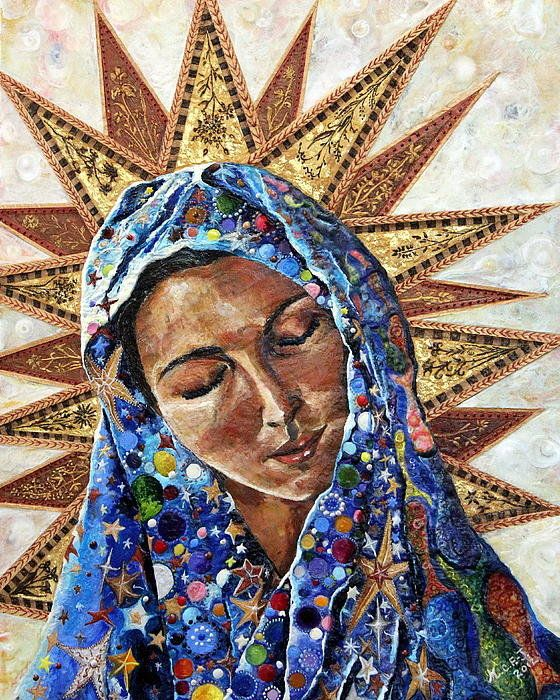A sermon preached at our patronal with prayers for Her Late Majesty: Isaiah 61:1-11, Galatians 4:4-7 & Luke 1:46-55
Standing in front of our Vicars’ board is a humbling and poignant thing: the dates connect us to past generations, eras and circumstances. They mark out times of conquest, plague and reformation; of settlements, civil war and restoration; of empire, industrialisation and commonwealth; of the blitz and the welfare state, state funerals and accession.
Most of the names are unremembered apart from being said out loud by the current incumbent wondering how they navigated change, how they, in the power of the Spirit, shared God’s word and witnessed to Christ.
They baptised at the font we use today; they, like us, took bread and wine saying take and eat do this in remembrance of me; we are united with them in every ‘our Father’. We laugh and weep like them; we comfort and seek consolation like them.
We come as T. S. Eliot expresses it: ‘you are not here to verify, instruct yourself, or inform curiosity or carry report. You are here to kneel where prayer has been valid’.
Amidst the changes and chances of this fleeting world, we continue this rhythm of worship and witness; dwelling in the eternal pulse of love, the fullness of God. Our lives are but small things held within this overarching story of God’s love for the world.
We trust in a God who works through small things: through one woman’s “yes” God’s Son is made flesh; immensity cloister’d in [her] dear womb. It is through the child-bearing of blessed Mary that we receive adoption as children of God, and if children then also heirs.
Heirs of a promise of a kingdom. Archbishop Fisher, who gave Her Late Majesty a book of devotions as she prepared for her coronation, said: ‘The Christian lives in two worlds at once; the world of Christ’s completed kingdom… and the world of continued conflict against the powers of evil’.
In some ways, Mary’s song - the familiar words of the Magnificat - is one which shapes how we live between these two kingdoms.
Mary’s whole being is caught up in praise of God, the assurance of grace: she embodies the words of Isaiah as mind, body, soul and Spirit are caught up in the fullest expression rejoicing and exultation. She also calls us into service of God’s kingdom on earth.
On Friday, Bishop Sarah said: ‘A life lived in the service of others is a rare jewel. It is a jewel that Her Late Majesty The Queen wore as a crown.’ Isaiah speaks of a rich crown too - of jewel and garland, garnets and robes. These were no mere earthy vesture but speak of God’s salvation and righteousness.
Salvation being God’s power to heal, restore and make whole. Righteousness being the quality of God’s faithfulness and loving mercy. Through Jesus, salvation is for any and for all - the greatest and the least. Mary speaks of this promise, remembered across all generations.
In Jesus, the powers of evil are undone: though his presence in the world, through his death and descent to the very depths of alienation and despair, though glorious hope of resurrection. As Rowan Williams puts it: ‘he comes to his new and risen life, his universal kingship by searching out all the forgotten and failed members of the human family’.
This is the stuff of the world of Christ’s completed kingdom. This is our hope.
Mary names the conflict and struggle of this world. She gives thanks for what God has done in faithfulness, blessing and generosity. She speaks of the consequences for the world.
The one whose name is holy will make known mercy from one generation to another. And mercy is revealed in deliverance from poverty, exploitation and domination.
As this courageous, joyful, obedient and determined young woman makes the voice of the prophets her own, God’s own Son is being knit together in her womb. Her words look forward to the start of his public ministry: the poor lifted up, the rich sent away; the hungry filled, the powerful challenged.
She declares the work of salvation and righteousness in relational terms: human community transformed, resources redeployed and imaginations enlarged. This is a song through which we too are called to embody God’s compassion, love and mercy; through which we seek all that makes for the flourishing of humanity and all creation.
Today, we hold in mind the life and words of one who, as a young woman, made vows and promises which she spent a lifetime inhabiting. Her Late Majesty was greeted in an Abbey with great pomp and ceremony; but she also knelt, laying aside regal robes and jewels, to be anointed.
The Queen - photographed by Cecil Beaton to commemorate her coronation in 1953
In her book of devotions, Archbishop Fisher had invited her to ponder this moment - anointed God’s servant until her dying day, drawing on resources of divine grace with a heart, mind and hands to do his will. The words Fisher gave the young queen were, ’in answer to God’s call and consecration, I dare to breathe the Virgin Mary’s words: “Behold the handmaid of the Lord; be it unto me according to thy word”.’
We too as adopted children and heirs are invited to breathe Mary’s words as we live trusting in God’s Kingdom amidst the real conflicts and challenges of the earthly realm.
Suc works are often about small things. Like seeds planted in hope - germinating unseen - brings forth shoots from the earth; small things out of which new life and hope springs up. Bringing the margins to the centre is not the preserve of the new Prince and Princess of Wales alone; it is the work of all of us, members of Christ’s body; people who breathe in Mary’s words.
God’s righteousness and salvation is enfleshed in Mary’s womb; from this small God’s power and love is made perfect in human weakness. This power breaks through in us too - as we break bread in remembrance of our living Lord; as the Spirit breathes through us, strengthen us for service.
In a small thing - a fragile wafer - we are fed, restored, strengthened by Christ’s body; we become his body, receiving dignity and purpose as adopted children and heirs.
We receive this gift not just for ourselves but for the world. Here, even in our grief we sing songs of hope and praise, vision and protest. Here, we commit to the pursuit of justice, compassion and peace; to courageous advocacy for the powerless and marginalized. Here, we like Mary, and all who dare to breathe her words, commit afresh to acts of service as a nation mourns Her Late Majesty who shares with us the inheritance of God’s kingdom.
We sing Mary’s song in places of vulnerability and fear; we breathe her words in solidarity with suffering and anxious. As members of Christ’s body we do small things which bring healing and hope; bringing the margins to the centre, seeking justice and peace.
The day before her coronation, an archbishop invited a young queen to ponder this peace in these words: ’But above all God has taken me into his peace and I praise for his being what he is, for his goodness, his enabling power, the certainty of his unfailing love’.
As she takes our rest, may we continue in our service: may God be in my head in our thinking, speaking and at our departing. Amen.
© Julie Gittoes 2022







.jpg/220px-Boney_M._-_Mary's_Boy_Child_(1978).jpg)

